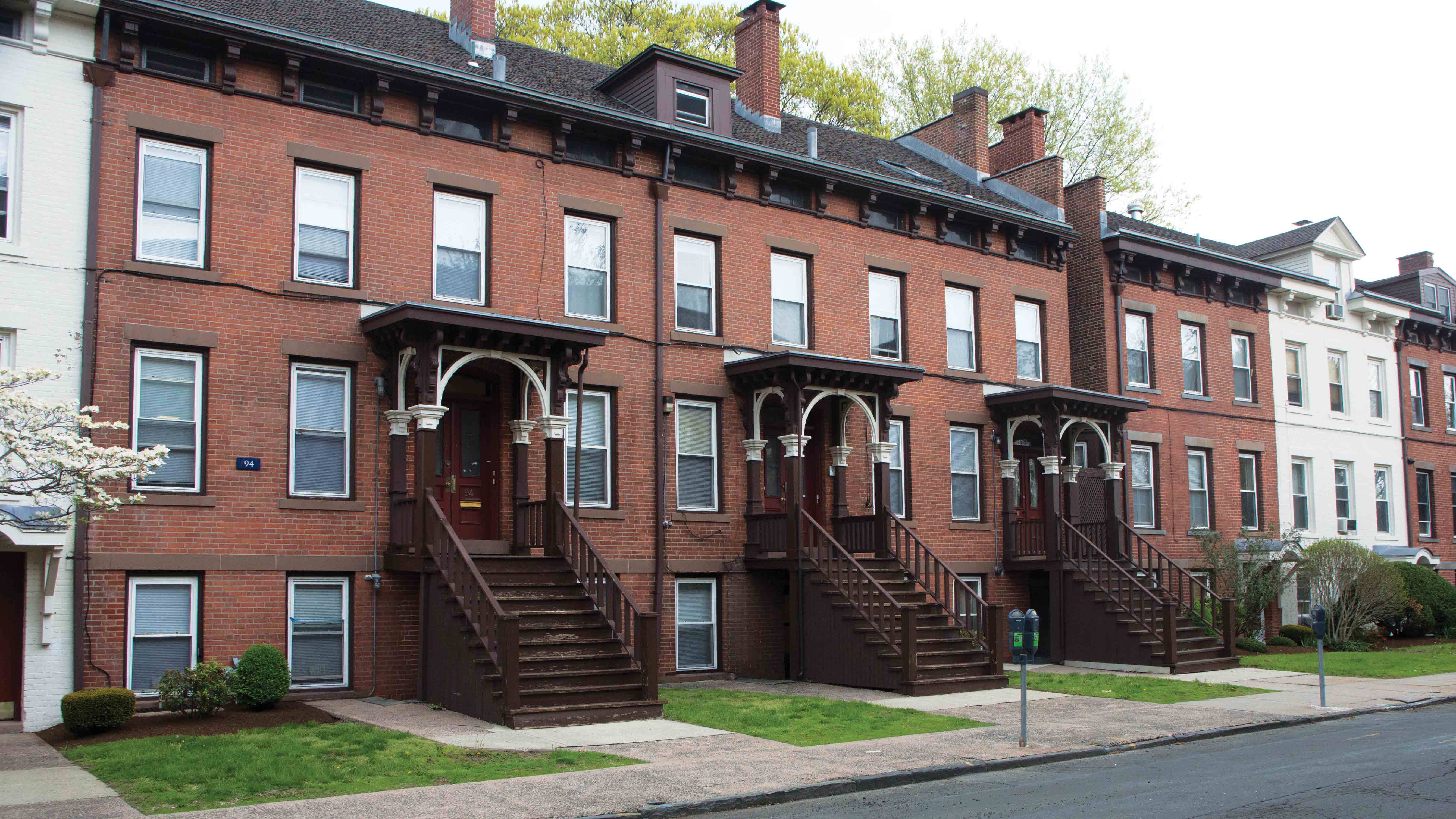
As new and refurbished units open in the Elm City, off-campus housing for Yale students is increasing in both popularity and accessibility.
Over the next 10 years, the city aims to add 10,000 new residents to New Haven’s housing market. With these new housing options, Yale undergraduate students have flocked to off-campus housing: Roughly 17 percent of undergraduates currently live off campus, according to a Yale College Council report on off-campus housing. The report, which was commissioned by Yale administrators, noted that only 11 percent of undergraduates have been historically expected to live off campus.
“We have more undergraduates than ever before,” said Elana Lehrer, manager of the apartment units at Haddon Hall on 1214 Chapel St. and 2–8 Lynwood Place. “A lot of our tenants are renting from a landlord for the first time. It’s their first housing experience. We try to cater to that.”
In an effort to respond to this proposed population increase, New Haven is relying on residential construction, with new projects like Audubon Square and Downtown Crossing, as well as renovations such as the Crown Street conversion.
The YCC report, which is in its draft stage, added that empty dormitories place a financial burden on the University, as the rooms require maintenance even if no one is living in them. Custodial and dining employees are also hired to service the expected number of on-campus students rather than the actual number.
The YCC’s assessment proposed the rise in off-campus housing can be partly attributed to the increased safety of surrounding neighborhoods. An off-campus culture has also developed, which may be enticing to certain students, the report also noted.
Developers are keeping up with the increased demand of students by both refurbishing more units and raising rental prices. Paris Realty recently purchased and renovated 90 Bristol St., which has dozens of apartment units between Morse and Pauli Murray colleges. Before the renovation, market rent for one-bedroom units was $800 a month, according to Paris Realty owner Mendel Paris. Now, the rent for a renovated unit goes for roughly $1,600 a month.
“It’s really an upcoming place,” Paris said. “Yale is expanding.”
Along with a desire to move off-campus, high on-campus housing prices, along with inflexibility in meal plan options, led other students to leave their residential colleges, the YCC report said. In fact, the YCC reports that nearly 75 percent of students paid less for room and board when they lived off campus.
Based on the YCC’s fall survey data, the report also concluded that undergraduates move off campus for a number of other reasons, such as dissatisfaction with residential college life, fear of being annexed and a desire to live with friends from other residential colleges.
And for students who want to find off-campus housing, the search process has become easier. On Sunday, the Yale Housing Office hosted its third annual off-campus housing fair, which was geared toward graduate students. At the event in the Schwarzman Center, hundreds of Yalies — both graduate and undergraduate students alike — met with dozens of realtors to discuss pricing options, locations and apartment cultures.
To aid students with their housing search process, Omelko Svitozar SOM ’17 started Squeakly nine months ago. Students pay the service to survey a housing unit’s living conditions, floor plans, noise levels and other traits, Svitozar said. Squeakly originally partnered with the Yale Housing Office and has since expanded to several other cities such as Boston, Toronto and Philadelphia.
If Yale administrators want to reverse the trend of undergraduates moving off-campus, the YCC report concluded that the University should halt forced annexation, possibly lower meal plan pricing and improve meal plan flexibility.
Yale’s residential college system began in 1933.







